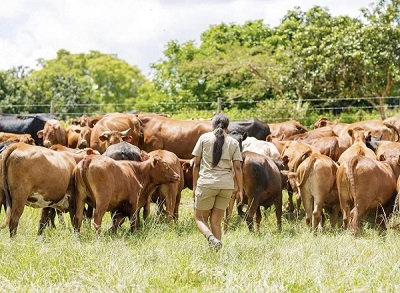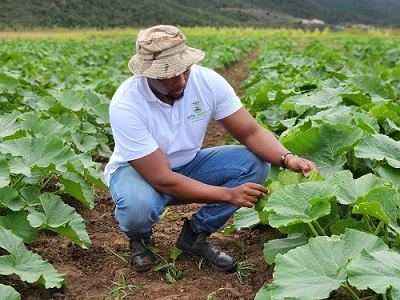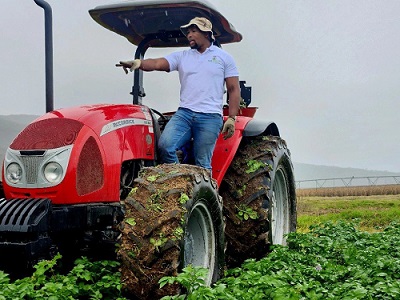by SAVIOUS KWINIKA
JOHANNESBURG, (CAJ News) – THE success of some black young farmers in South Africa has reinforced calls for equitable land distribution in the country.
Over 30 years into independence, the white minority own 80 percent of the country’s rich alluvial soils.
Blacks have struggled to make breakthroughs into farm ownership, with the government blamed for complicity.
This week, Agriculture and Young announced up-and-coming farmers- Ayandamageba Zulu from KwaNongoma, KwaZulu Natal and Thulani Magida from Keiskammahoek, Eastern Cape – demonstrated beyond doubt land ownership ended poverty.
Zulu is now a commercial farmer and land owner of Wenzokuhle Holdings, which is a 100-percent black-owned agricultural enterprise.
She ventured into farming in 2016 after struggling to find a satisfying job of her dream. She specialises in both crops and livestock, a development which is now benefiting local communities and businesses nearby.
Farming has transformed her life and the ones she supports with agricultural activities.

Magida started farming in 2022, growing vegetables and field crops.
He too has witnessed his life take a new positive direction.
Magida is also the founder of Juta Agritech, a farming business on 20-hectare land. He is licensing drone technology to use drones in the farm.
Agricultural Economist Expert, Wandile Sihlobo, highlighted the necessity of land reform in South Africa.
This also owes to farming’s prospects of employment creation.
“Employment in South Africa’s primary agriculture increased by 6 percent year-on-year to 941 000 in the first quarter of 2024,” Sihlobo stated.
Ahead of the May 29 elections, the opposition Economic Freedom Fighters (EFF) has heightened calls for the expropriation of land without compensation in order to redress the colonial imbalances.

“Landlessness is still the lived reality of the majority of our people,” Julius Malema, EFF leader, said at one of the party’s star rallies.
The EFF’s stance seems to be fast gaining traction among majority black people, especially the youths, who are a segment of the population worst affected by joblessness in a country said to have “the most unequal society in the world.”
The party said once elected, it would embark on massive protected industrial development to create millions of sustainable jobs, including the introduction of minimum wage, in order to “close the wage gap between the rich and the poor, close the apartheid wage gap and promote rapid career paths for Africans in the workplace.”
“”Massive development of the African economy and advocating for a move from reconciliation to justice on the entire continent,” the EFF’s manifesto pledges.
“Open, accountable, corrupt-free government and society without fear of victimisation by state agencies. The seven cardinal pillars and all the areas covered by the manifesto are of crucial importance to us in their totality, while specific emphasis is being placed on land and jobs.”

EFF is one of several parties aiming to unseat the ruling African National Congress (ANC), which has won all elections since 1994, the first to be held after the demise of apartheid.
South Africa goes into elections on 29th May.
– CAJ News

